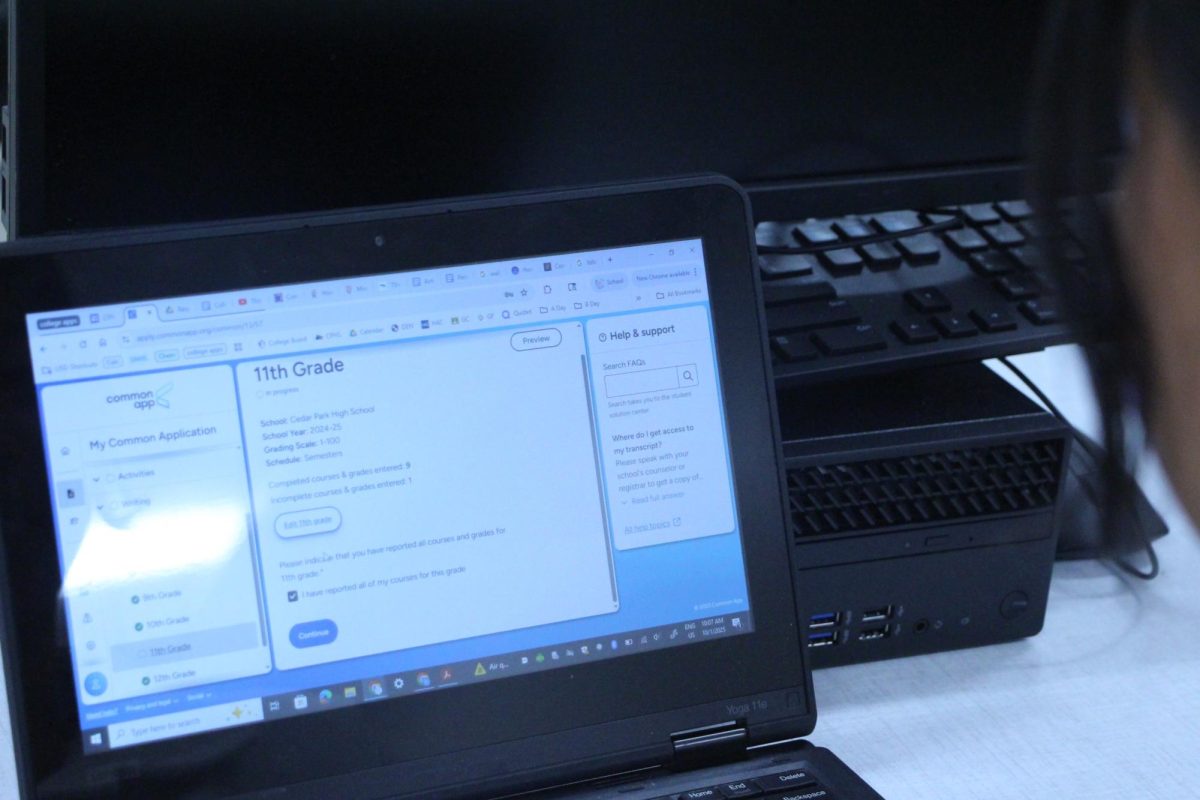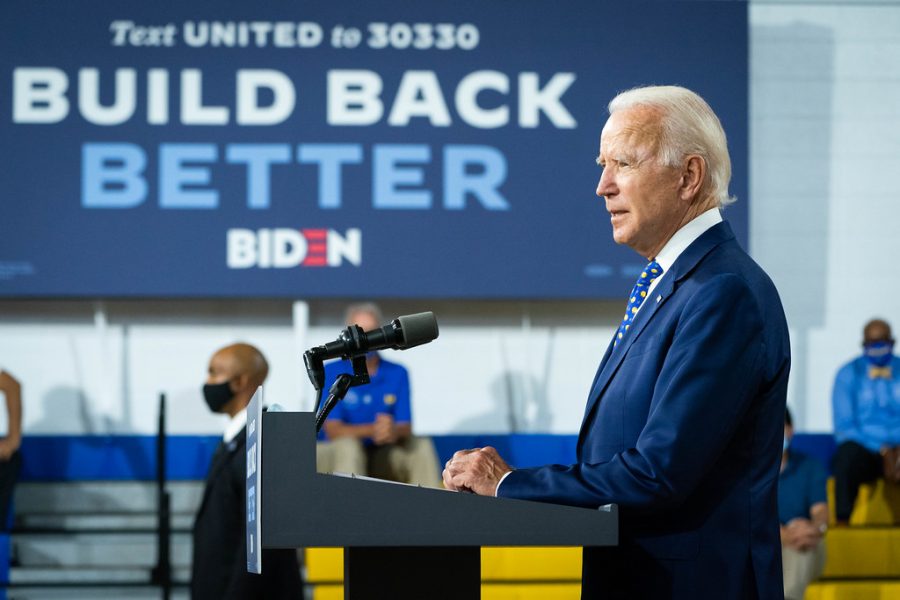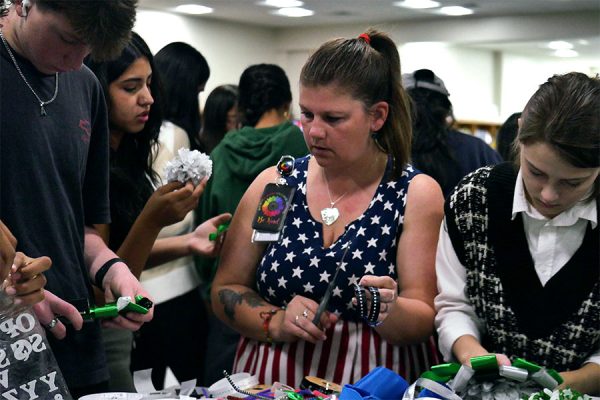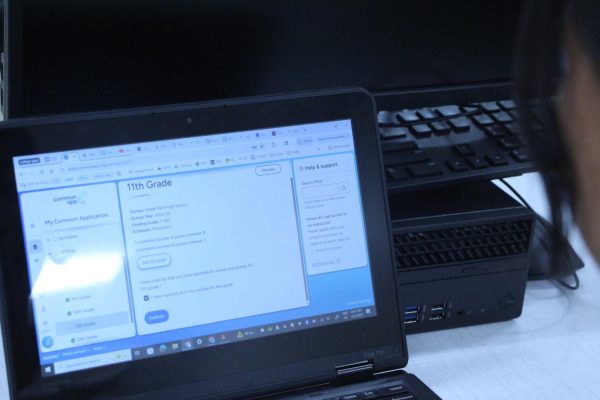Cooperation or Conflict
Political Action in a Time of Division
Photo by Adam Schultz on Creative Commons
The Bipartisan Infrastructure Bill and the Build Back Better Bill are two parts of Biden’s Build Back Better plan to recover the American economy. Both of them provide well-needed funding to recover from the COVID-19 recession. However, the difference between the Bipartisan Infrastructure Bill and the Build Back Better Bill’s legislative processes opens up interesting questions about the need for bipartisanship in dire economic times like these.
November 11, 2021
On Oct. 28, President Joe Biden unveiled a $1.75 trillion bill called the Build Back Better Act, or BBB, which plans to address issues like climate change, universal Pre-K coverage and pandemic preparedness. It sounds like a steep price tag until it’s compared to the previous version of the Build Back Better Act, which had a funding of $3.5 trillion that caused a firestorm of negotiations, leading to some of the most virulent criticism to ever be thrown towards Congress by the public. These negotiations and the counterpart Bipartisan Infrastructure Bill written by both Democrats and Republicans ultimately show that conflict and disagreement is sometimes a small price to pay for inaction.
Criticism wasn’t across party lines like usual – right now, it’s expected that all 50 senate Republicans would vote against more social spending. Two Democratic senators in particular, Senator Joe Manchin of West Virginia and Senator Kyrsten Sinema of Arizona, received the brunt of the condemnation from advocates of more social spending in their own party. After all, in a 50-50 senate, the passage of Build Back Better would be assured if these two simply voted in favor.
Manchin and Sinema’s resistance to the $3.5 trillion price tag is not completely unjustifiable. Manchin’s state, West Virginia, went overwhelmingly for Trump by 42 percentage points in 2020. Sinema’s state of Arizona only went to Biden by a 0.3 percent margin amid a state election that was hotly contested by Trump supporters, showing the enthusiastic right-wing base of Arizona that Sinema feels the need to moderate herself against in order to win re-elections.
While there is an ongoing need in America to reach across the aisle and communicate with people who politically disagree, the discourse surrounding the BBB negotiations shows that there are limits to bipartisanship and moderation. Moderation is a means to an end – it can be an effective method of passing legislation that would not otherwise make it, such as the bipartisan infrastructure bill that was passed on Nov. 5 in the House of Representatives with the help of 13 Republican votes. The efforts to negotiate with Republicans for the Bipartisan Infrastructure Act was spearheaded by Manchin and Sinema themselves, and some of the policies in the bill were wholly necessary to pass in the nation’s efforts to recover from the COVID-19 recession.
On the other hand, their response to the original $3.5 trillion proposal from Biden was less than stellar. Even when considering that Biden planned to use $3.5 trillion over 10 years, both of them balked at the surface-level price tag that would’ve funded free community college, paid family and medical leave (of which the United States is one of the only countries with none) and expanded Medicare coverage for vision and dental services.
Even if it could be justified for West Virginia’s Manchin, who is from one of the reddest states in the country, the same can’t be said for Sinema. According to FiveThirtyEight.com, Sinema’s method in Arizona is rallying more moderate and conservative voters rather than left-wing Arizonians. On the surface, it seems like a viable strategy. If you’re a Democrat, it’s better that there are any Democrats in office as opposed to a Republican. But her colleague, Democratic Senator Mark Kelly, has nearly the same level of support as Sinema in their home state of Arizona – 47 percent for Kelly to 46 percent for Sinema – while appealing more broadly to Democrats.
Bipartisanship and moderation are concepts that sound nice on paper. Each side has a rational discussion with each other, reaches the best of both worlds, and leaves everyone happy. Of course, as was mentioned with the BIF, there are uses for bipartisanship and it is an effective means to an end. However, it is not an end goal – if there is a way of convincing someone about the viability of a policy, and if electoral chances are not hurt when the policy is passed, then moderation is unnecessarily getting in the way of well-needed policy. Conflict is not an inherently bad thing if the alternative is preventing popular, crucial legislation from passing.
What the average, working-class person needs is progressive economic policy. Convincing them that it’s good policy will not happen with the legislative process going as roughly as it is due to the moderate opposition. For politically-minded readers who are aware of the benefits of the Build Back Better Act, notify your community that it’s everyday, “tabletop” issues the BBB tries to address. It addresses the childcare that American parents are needing more help with than ever. It addresses small businesses negatively impacted by the COVID-19 recession. It addresses affordable housing and expanded access to home care for disabled Americans. Forgoing these issues or decreasing their funding is always better than nothing. If it enjoys support, though, and would help Americans with every dollar added towards its projects, obstructing it is antithetical to progress.







![As her hair blows in the wind, senior Brianna Grandow runs the varsity girls 5K at the cross country district meet last Thursday. Grandow finished fourth in the event and led the varsity girls to regionals with a third place placement as a team. “I’m very excited [to go to regionals],” Grandow said. “I’m excited to race in Corpus Christi, and we get to go to the beach, so that’s really awesome.” Photo by Addison Bruce](https://cphswolfpack.com/wp-content/uploads/2025/10/brianna.jpg)


![Broadcast, yearbook and newspaper combined for 66 Interscholastic League Press Conference awards this year. Yearbook won 43, newspaper won 14 and broadcast took home nine. “I think [the ILPC awards] are a great way to give the kids some acknowledgement for all of their hard work,” newspaper and yearbook adviser Paige Hert said. “They typically spend the year covering everyone else’s big moments, so it’s really cool for them to be celebrated so many times and in so many different ways.”](https://cphswolfpack.com/wp-content/uploads/2025/05/edited-ILPC.jpg)





![Sitting with her friend senior Sohpia Struve at last year’s Austin City Limits Festival, senior Ava Zuniga poses for a picture under a pavilion. They are frequent attendees at ACL, an annual music festival at Zilker Park. “I would recommend seeing a bunch of people,” Zuniga said. “This past year, we camped out for Chappell [Roan] for a really long time. I think the whole point of ACL, [which] is a lot of fun, is that you can go see so many different people, even if you don’t know them. So by camping by one person, it really limits yourself from being able to go see a bunch of people.” Photo courtesy of Ava Zuniga](https://cphswolfpack.com/wp-content/uploads/2025/10/EE9E9484-FE6F-4AA0-B5F5-0C177AB32841-1200x857.jpeg)
![Looking down at his racket, junior Hasun Nguyen hits the green tennis ball. Hasun has played tennis since he was 9 years old, and he is on the varsity team. "I feel like it’s not really appreciated in America as much, but [tennis] is a really competitive and mentally challenging sport,” Nguyen said. “I’m really level-headed and can keep my cool during a match, and that helps me play a bit better under pressure.” Photo by Kyra Cox](https://cphswolfpack.com/wp-content/uploads/2025/09/hasun.jpg)

![Bringing her arm over her head and taking a quick breath, junior Lauren Lucas swims the final laps of the 500 freestyle at the regionals swimming competition on date. Lucas broke the school’s 18-year-old record for the 500 freestyle at regionals and again at state with a time of 4:58.63. “I’d had my eye on that 500 record since my freshman year, so I was really excited to see if I could get it at regionals or districts,” Lucas said. “ State is always a really fun experience and medaling for the first time was really great. It was a very very tight race, [so] I was a bit surprised [that I medaled]. [There were] a lot of fast girls at the meet in general, [and] it was like a dogfight back and forth, back and forth.” Photo by Kaydence Wilkinson](https://cphswolfpack.com/wp-content/uploads/2025/03/Kaydence-2.7-23-edit-2.jpg)
![As the support team sits and poses for a photo in the cafeteria with the counseling team they eagerly wait to start their day. "We [all] seem to be a team, I get up every day and there's days where I don't want to go to work today, but I'm thankful that I have a job and I'm blessed to have what I have," Christopherson said. Photo Courtesy of Julie Weltens.](https://cphswolfpack.com/wp-content/uploads/2025/01/AF9E8470-10D7-4C91-BF28-EC8F86BAB66C-1200x852.jpeg)
![Jumping off the ground, senior linebacker Bennett Patton snatches the ball out of the air for an interception at Thursday’s game against Chaparral. Patton had two interceptions in the 56-14 victory, tying the school record for interceptions in a game. “I was just playing the game,” Patton said. “[I’m] going to go into next week, forget about it and stay humble.” Photo by Harper Chapman](https://cphswolfpack.com/wp-content/uploads/2025/09/bennett-interception.jpg)

























![The fire department came to the school after students were evacuated when smoke started coming from the ceiling of a classroom. All students and staff are safe. “All of my friends left their stuff too, so we couldn’t contact our parents, and it was stressful,” senior Brynn Fowler said. “It was scary because I didn’t know [what was going on], and I couldn’t find anyone because it was a big crowd.” Photo by Anthony Garcia](https://cphswolfpack.com/wp-content/uploads/2025/09/firetruck-300x200.jpg)






